- Home
- Helen Forrester
Minerva's Stepchild Page 3
Minerva's Stepchild Read online
Page 3
I was truly relieved to see Mother beginning to take an interest, but I did not dare tell her that my throat was ominously sore, and I feared that I was getting tonsillitis again, a disease which had always plagued me.
On the advice of the taxi driver, she alighted in an area of tall, narrow, Victorian houses. From house to house, up and down the imposing fi-ont steps, she dragged herself, knocking on doors which were cautiously opened by black, white, brown, and yellow hands. Nobody would consider a family of seven children.
When she had almost reached the point of giving up, she came to a house where the doorbell actually worked. The door was answered by a tiny old lady in a black apron, who looked very clean.
In reply to mother's query regarding accommodation, she lifted a finger heavenward and announced piously, "The Lord will provide!"
Mother blinked and prepared to turn away. But the old lady
added imperiously, "I will call Mrs. Foster. Please step into the hall."
Mother stepped in, as requested. The house was not nearly as clean as the old lady, and the lofty hall, with its peeling, olive-green wallpaper, its threadbare, dusty rug and strong smell of cooking, did not inspire confidence. The old lady toddled to the back of the hall and shrieked up the stairs in a strong, Liverpool accent, "Bissis Fostaire!"
A door upstairs squeaked open, and a deeper shriek replied, followed by a heavy tread on the stairs.
"God bless you, my child," said the old lady to Mother, and vanished into her flat.
Mrs. Foster, who emerged from the gloom of the staircase, probably measured nearly as much around as she did in height, a veritable ball of a woman. Her neck was draped in a series of long bead necklaces, and her pale-blue eyes had a hard, myopic stare.
Mother repeated her inquiry regarding rooms, then sat down suddenly on one of the hall chairs, and fainted.
She was aroused by the strong odor of smelling salts, proffered by an old gentleman with a handlebar mustache. She was vaguely aware that she was leaning against the ample bulk of Mrs. Foster.
With the aid of the old gentleman and encouragement fi-om Mrs. Foster, she managed to climb a double flight of stairs into what had been the drawing room of the house.
Mother was assisted to a chair by the cheerfully blazing fire and after a moment's hesitation, the old gentleman retired, closing the door quietly after him. Mrs. Foster pushed a kettle already standing on the hob around onto the fire.
"You'll feel better when you've had a cup o' tea, luv. Would you like to take off^yer hat?"
Mother thankfully removed her hat and leaned back in her chair.
"That was me brother," remarked Mrs. Foster, gesturing toward the closed door. "Me grandfather built this house." She looked round the room proudly. "Left it to me father, and he left it to me brother and me. We must be almost the only people left around here as owns their own house."
She turned around and surveyed Mother, weighing her up
quite accurately, as it transpired. She oserved the fashionable hat, the dirty dress, the beautifully cut tweed coat, the white hands, and finally the dead, gray face. "Been real ill, haven't yer, luv?"
"I have, rather."
"And you want a place for you'n' the kids?"
"And my husband."
"Oh, I thought mebbe he'd left you."
"No."
Mrs. Foster silently considered this information while she assembled a tray of fine, rose-patterned crockery and made the tea.
She poured Mother a cup of tea, ladling a generous amount of sugar into it, and then sat down herself, stirring her own tea.
"I've got two rooms and an attic at the top of the house," she said. "I hadn't had in mind to have kids in them." She paused and ran her tongue around her ill-fitting, artificial teeth.
"Mine are fairly well-mannered," Mother assured her hopefully. She sipped her oversweet tea, and its scalding heat began to revive her.
"I got two married couples and two single ladies in the rooms underneath. The married ones is at work all day, so they won't hear the noise, and the ladies—well, there's plenty like them, if they don't like it." She put her spoon into the saucer with a decisive smack, her mind made up. "You can have the rooms for twenty-seven shillings a week—in advance, mind you. There's a gas meter and gaslight in the kitchen-living room."
Mother was too thankfial at having found a place for us to live in to realize that the rent was exorbitant for such accommodation.
"Is it fijmished?" Mother asked.
"Yes. There's enough fiamiture—and you can add a bit of your own, no doubt."
Mother put down her cup. "I wonder if I may see it? "
"Certainly, if you feel okay now."
Laboriously, Mother climbed thirty-two more stairs. There was a kitchen-living room with a small bedroom fireplace. It contained a wooden table, two straight chairs, a cupboard with odds and ends of crockery and saucepans, a rickety, bamboo bookcase filled with dusty books and a horsehair sofa exhibiting its intestines.
The bedroom held a black metal double bed, covered with a lumpy, stained mattress, and an ancient wardrobe with a broken door and no mirror. A further small staircase led to an attic, which held another double bed. This bed lacked a leg, and one comer was held up by a pile of bricks. Two trunks lay in a comer, and an old door was propped against one wall. All the windows were shrouded in lace curtains, gray and ragged with age.
Mother looked around her in despair.
"Nobody d take seven children nowadays," puffed Mrs. Foster, as they descended the stairs once more.
Mother knew this to be true and, since the accommodation represented at least a roof under which to shelter, she said, "I appreciate that, and I will take the rooms."
They went back to Mrs. Foster's room, a rent book was carefully made out, and Mother paid over a week's rent. She was informed that she could hang clothes out to dry in the tiny, overgrown back garden, but the children could not play there.
Mother sighed. She must have been sickened by the squalor of the place. She asked how to reach our present rooms by bus and found that a tram went from a nearby comer.
The trams were open at the front and back, and the driver in a shabby uniform augmented by a huge scarf around his neck stood exposed to wind and rain, his foot forever on his clanging bell. The conductor, not quite so well armored against the elements, heaved young and old on and off, crammed the vehicle with loud admonitions to "Move farther daan t' back there and make some room for them as comes atter yer," and collected the fares in a jingling leather pouch.
As she sat swaying in the noisy vehicle. Mother watched them work and realized that Mrs. Foster had not asked if Father was employed or not; we discovered later that she had taken it for granted that he was not.
Darkness had long since fallen when Mother at last staggered into our living room and collapsed onto the settee.
THREE
------------------------------------------------------------------------------------
Half an hour after moving into our new abode on the following Monday, we began to appreciate some of the difficulties of living there.
Our coal was to be kept in a cupboard by the back door of the basement. This meant that every bucketful had to be carried up sixty-four stairs. We were to share the bathroom on the floor below with eleven other residents, and this meant innumerable trips for me up and down thirty-two stairs, since Brian, Tony, and Avril were far too scared of the dark staircase and cryptlike, filthy bathroom to go down alone. I was getting resigned to disgusting bathrooms—they seemed the way of life in Liverpool.
The gas for the light in the living room came through a slot meter which ate pennies at an alarming rate. We did not know that such subsidiary meters were installed and set by landlords at the highest rate they thought they could squeeze out of their tenants. The landlords emptied these meters. They had only to pay the gas company the amount on the main house meter in the basement, and they pocketed quite a substantial profit on this
transaction. A more worldly-wise person than my mother would have inserted a penny and run the gas, to see how long a penny lasted, before accepting the tenancy.
Father went out and stopped a passing coal cart, and the man brought in a sack of coal. He then went to buy cigarettes at a tiny comer store. Both he and Mother had been heavy smokers and found their enforced abstinence hard to bear.
We had brought with us on our tram journey a little oatmeal, a few potatoes, sugar and tea. There was still some baby food for Edward, and since it was late afternoon by the time we arrived, I made a bottle of formula and then some cereal for the other children. Alan had managed to get a smoky fire going, having lugged a handleless bucket ftill of coal upstairs by hugging it to his chest. His shirt, already dirty fi*om a week's wear, was now streaked with coal dust.
Although my head was throbbing and my throat very sore, I ate some cereal gratefully.
There was no hot water in the bathroom, so I heated pans of water on our fire, and, starting with Avril, washed all the children, except Alan, who washed himself. Little Tony, fair and silent like Fiona, felt very hot, too, and I sat him on my knee and got him back into his grubby clothes as fast as possible.
I tucked Alan, Brian, and Tony up in the bed in the attic, spreading over them their three overcoats. My weary mother had been resting on the bed in the bedroom, and we now held a hasty debate about where Fiona, Avril, and I should sleep, it being tacitly agreed that Mother, still in pain, had to have a bed. After a long argument. Father and I brought down into the bedroom the old door which had been left in the attic. We propped this up at each comer with a pile of books from the bamboo bookcase, and then covered it with crumpled newspaper found in the wardrobe. Avril was delighted that Fiona, she, and I were going to share this improbable bed. Father and Edward would share Mother's.
Mother got up and went into the living room, while I put Avril to bed, and when I joined my parents later, they were quietly muttering reproaches at each other through clouds of cigiirette smoke. The problem was that we had only three shillings left from our parish relief, and we had to live, somehow, nearly three more days until the benevolent parish would disgorge another forty-three shillings.
As I entered, they broke off their recriminations and Father told me to go to bed. I went thankfully, clinging to Fiona because I felt so dizzy. Fiona was crying silently as if her heiui: was already broken. Avril refused to mcike room for us at first, but I slapped her legs, and with a howl she made way.
With nothing over us except our overcoats and only newspaper under us, it was unbearably cold, and yet at times I felt dreadfully hot.
After a broken night of bad dreams, through which I could hear Edward crying steadily most of the time, I staggered out of bed when Mother ciilled me. I could hiu-dly speak, and my throat was swollen from eiir to chin.
With eyes still closed, she told me in a whisper to ciill the
others, get them ready for school, cut them some bread to eat, and make some milkless tea to drink.
Obediently, I built a fire, and when I had fanned it with a newspaper into some semblance of heat, I put a pan of water on it for the tea. Fiona got up fi-om her rustling couch, leaving Avril still slumbering, and without being bidden, went downstairs to wash in the bathroom.
"The minister's soap is nearly finished," she reported as she handed me the remains of the tablet.
I went upstairs to call the boys and clung to the rickety banister because of the dizziness that enveloped me. The boys were not making their usual rumpus, and I found Alan anxiously surveying a tearful Tony, whose neck was as swollen as mine, while Brian was lying miserably on the mattress and saying that he didn't feel well and he wanted to go home.
"I'll tell Mother," I said, through nearly closed lips. I noticed, in terror, that we all seemed to have very large red spots on us—mine itched abominably.
Mother looked so utterly defeated when I told her about the boys and me that my heart went out to her. She woke Father, who had been sleeping the deep sleep of exhaustion.
He sat up quickly, put on his spectacles, and peered at me. "I think it's mumps, " he said incredulously.
"It's my old tonsillitis," I said in a whisper. "My ear hurts like it always does when tonsillitis is coming."
My voice and the room seemed to be receding fi^om me, and I burned with heat.
"I think you have mumps as well. "
"Does mumps bring you out in spots?" I asked.
He was scratching absentmindedly at himself, as I spoke. "Oh my God!"
He looked at his own arms, and then at my bright red tummy, which I obligingly bared for his inspection.
"Bedbugs, I think," he said slowly. "Saw them in the army."
Slow tears welled into Mother's eyes. "I can't bear it!" she cried out suddenly. "I can't bear it!" She hammered the mattress with closed fists and screamed, her pretty face distorted. "I can't stand anymore."
She continued to shriek hysterically as we gaped at her in
terrified silence. For me the scene was almost totally unreal, as fever gained on me; yet I knew that one of my parents had nearly reached the end of her tether, and it was difficult to contain my own screams of fright.
Heavy feet sounded on the stairs, and a coarse male voice shouted up, "For Christ's sake, shut up, up there!"
In spite of the pain in my throat, I began to cry. "Don't cry. Mummy," I begged, "we'll get through somehow."
Father bestirred himself and scrambled out of bed. "Yes, don't cry," he said kindly. "I'll tell Mrs. Foster about the bugs."
Slowly, as Father pottered around, trying to bring some order to his distraught family, Mother's cries gave way to sobs, and she laid her head down on the mattress, sobbing quietly to herself.
Father trailed down to the basement to fetch some more coal and coaxed the fire into a more cheerful blaze. Then we all went and stood by it while he looked us over one by one.
Mother wept on, Edward and Avril slept.
In his opinion. Father said with a sigh, Tony, Brian, and I had mumps. In addition, I undoubtedly had tonsillitis. Everybody was so used to my sporadic bouts, that this pronouncement did not bring me any sympathy. Rather, it was taken as an example of my usual awkwardness and waywardness of character. As Father said, "You would! Just at this time. "
We three sick children were piled into the attic bed. I hardly knew, by this time, what was happening around me. Apparently, Mother was persuaded to feed Edward, when he woke, and Father fed Fiona and Alan. He then took them to their new school, where he had to part with fourpence for a week's fees.
I am not sure how my parents managed during the next few days, except that, according to Alan, they pawned my overcoat for two shillings in order to be able to buy coal. I remember, between bouts of delirium, seeing my mother crawling about, sometimes literally on her hands and knees, as she struggled to look after Edward, and Fiona bringing me drinks of hot water with a tiny piece of bouillon cube dissolved in it.
The pain in my ears was intolerable, but there was no doctor to paint my throat, no hot-water bottle or aspirin to ease the searing pain, no drops in my ears to encourage a discharge. The
mumps soon decreased, but it was several days before the agony in my ears suddenly diminished. There was a heavy discharge from them onto the bare mattress, and my temperature began to go down. I became aware that Brian and Tony were no longer with me, and I called out, my voice seeming muffled and far away to me.
They both came clattering up the attic stairs.
Their faces seemed to have shrunk far more than the vanquished mumps justified. Brian looked more monkeylike than ever, and Tony's blue eyes and the bones of his head seemed grotesquely prominent. They both had large, scarlet spots about their faces and necks.
"It's very quiet," I whispered. "Where is everyone? "
"Alan and Fiona are at school. Mummy's in the living room with the baby. We have to be quiet so she can rest."
"That's right," I said. I tried to si
t up but found that the room swam around me, so I was glad to lie down again. I looked imploringly at Brian. "I'm so cold, Brian. Could you find something more to cover me with?"
He immediately went and fetched his overcoat and put it over my shoulders.
"Where is Daddy?"
"He's gone to see Mr. Parish," volunteered Tony.
I smiled at his name for the public-assistance committee.
"Be a darling and bring me my specs, " I commanded him. I still felt a bit hot between the shivers. "Gosh, I do smell!"
The sides of my head were sticky with the discharge from my ears, but for the moment I hadn't the strength to do anything about it.
"Tell Daddy I'm better, when he comes," I said. "You can play in here if you like. " And I closed my eyes, thankful to be free of pain at last, and fell into a deep sleep while the boys played tag up and down the room. I awoke much later to find Father bending over me, trying to see me by the light of a candle stub. He felt my head. It was cool.
"Feel better? " he asked.
"Yes."
"That's my girl."
"How is Mummy?"
"Much better. She's walking quite well now."
"Has she stopped crying?" I could not keep a hint of fear out of my voice.
Father looked old and very tired, as he said quietly, "Yes, she's better now."
"Can I get up?"
"Yes, I think it would be a good idea. We've got a fire today, so it's warmer in the other room. "
I craved a hot cup of tea, and I hoped that if we had a fire to boil the water we might also have a little tea in the cupboard. My legs almost refused to obey me, and I clung to Father's arm as I shuffled across the floor, down the attic stairs and into the living room, where I was greeted rapturously by Fiona and Alan and with a wan smile by my exhausted mother. Avril was sitting on the floor in a corner, her face red and tear-stained, getting over a tantrum.
Brian and Tony went back to school, two subdued ghosts walking hand in hand for fear of being bullied by the heavily booted older boys in the street.

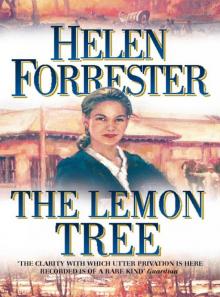 The Lemon Tree
The Lemon Tree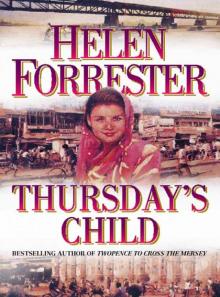 Thursday's Child
Thursday's Child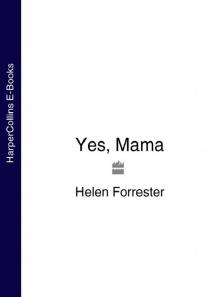 Yes, Mama
Yes, Mama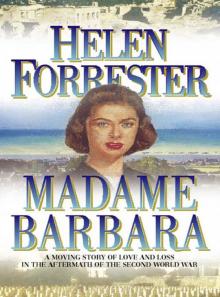 Madame Barbara
Madame Barbara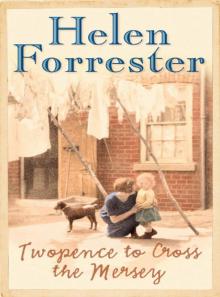 Twopence to Cross the Mersey
Twopence to Cross the Mersey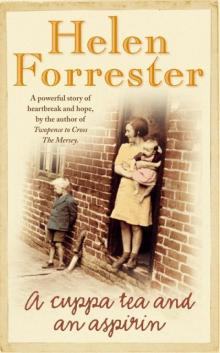 A Cuppa Tea and an Aspirin
A Cuppa Tea and an Aspirin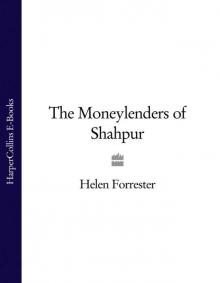 The Moneylenders of Shahpur
The Moneylenders of Shahpur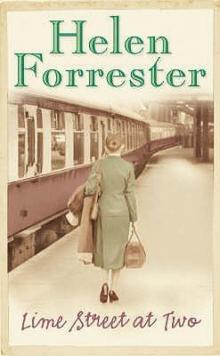 Lime Street at Two
Lime Street at Two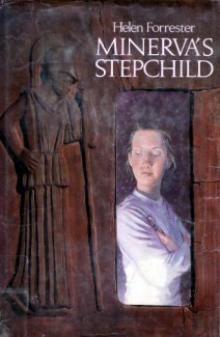 Minerva's Stepchild
Minerva's Stepchild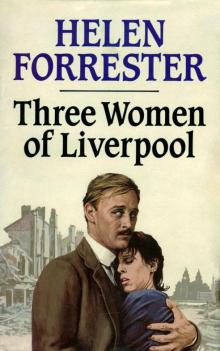 Three Women of Liverpool
Three Women of Liverpool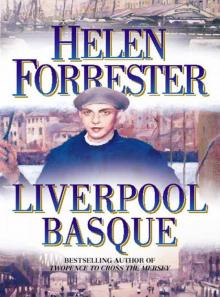 The Liverpool Basque
The Liverpool Basque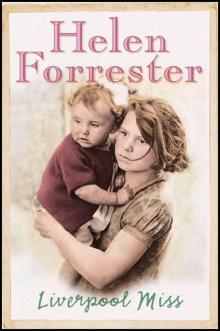 Liverpool Miss
Liverpool Miss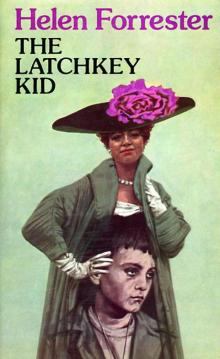 The Latchkey Kid
The Latchkey Kid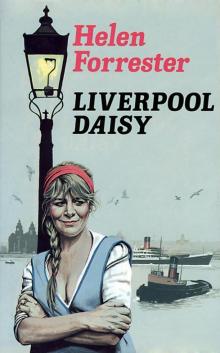 Liverpool Daisy
Liverpool Daisy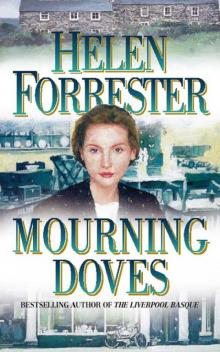 Mourning Doves
Mourning Doves